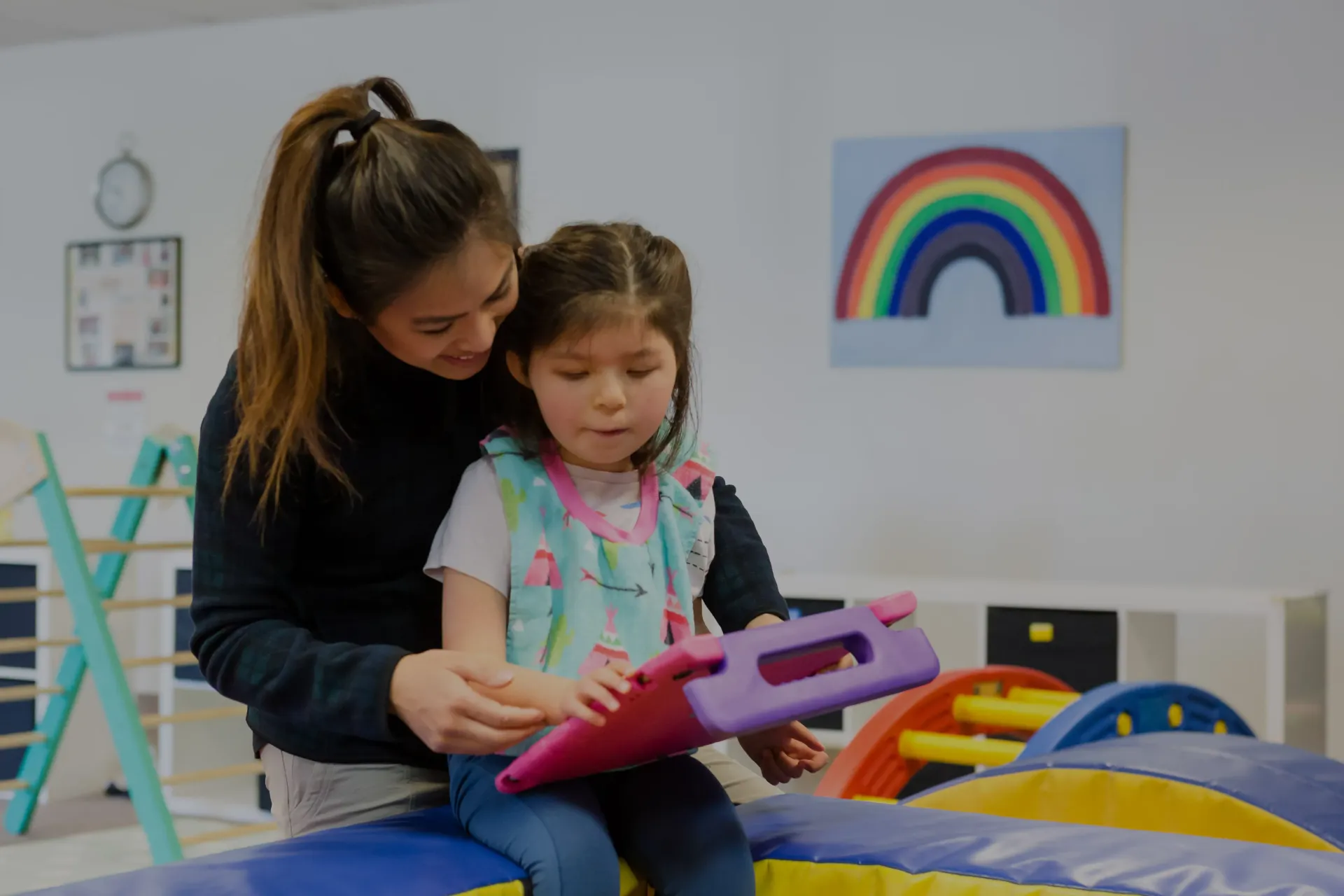AAC Myths & Truths

AAC Myths & Truths: How Alternative Communication Devices Can Change Lives for the Better
When an individual is diagnosed with a communication disorder, AAC (Augmentative and Alternative Communication) can be a very effective tool. AAC refers to any communication aid that helps individuals communicate without talking; such as drawing, pointing to images or objects, gesturing, spelling words, and AAC devices. While research demonstrates that all modes of AAC can be incredibly helpful;
high tech AAC, including devices and apps, are often misunderstood in their effectiveness for a variety of communication disorder diagnoses. Here at PMC, we know AAC devices can be invaluable! Here are a few fun facts that uncover the truths and myths surrounding AAC devices and communication.
Myth #1: AAC devices should not be used with young children. They can limit verbal speech development and inhibit communication.
FALSE!
Truth: AAC devices are often most effective as a therapeutic tool when utilized in early intervention. AAC devices can be utilized for young children of all ages - including children
under the age of three! AAC devices do not slow down speech development, but can enhance an individual's ability to communicate successfully and reduce frustrations due to miscommunication.
Myth #2: AAC users must be able to use their hands independently to operate a device.
FALSE!
Truth: AAC devices include many options for users, and do not necessarily require the functionality of hands and fingers for pressing a screen and selecting various words or images. Additionally, speech language pathologists often work alongside
occupational and physical therapists when introducing AAC devices to ensure that the individual is using the device in the most appropriate manner for their needs.
Myth #3: If a child is able to speak a little, they don’t need an AAC device.
FALSE!
Truth: AAC devices are helpful for any individual struggling with verbal communication, no matter their ability. Children with limited speech will greatly benefit from AAC devices as another tool in their speech therapy toolbox! AAC will
not limit their speech progress or verbal communication skills but can actually contribute to improved verbal skills!
Myth #4: Once someone starts using an AAC device, they’ll never be able to stop using it.
FALSE!
Truth: Communication disorders can affect people of all ages, abilities and backgrounds. An AAC device can be a gamechanger whether an individual has
permanent or temporary limited speech, and whether they need to rely on it for a few days or a few years. If a young child uses an AAC device, it does not mean that it is a permanent fixture in their therapy toolbox. The goal of a speech therapist is to aid in language and communication - therapists are aiming for the best possible outcome with every patient!
Myth #5: AAC devices are ineffective in children with cognitive disabilities, delays or impairments.
FALSE!
Truth: There are no requirements for cognitive abilities when it comes to using an AAC device. Speech therapists generally group speech disabilities and disorders into
four main categories: Developmental and genetic (autism, cerebral palsy, Down syndrome), acquired disorders (brain injury, stroke), progressive issues (Parkinson’s disease, ALS), and cognitive-communication disorders (dementia, aphasia). Each of these categories requires a different strategy when using AAC devices. Speech therapists can adapt their strategy for communication regardless of age or ability, there are no prerequisites for AAC devices!
Do you or a loved one use an AAC device? What is your favorite thing about this technology?









